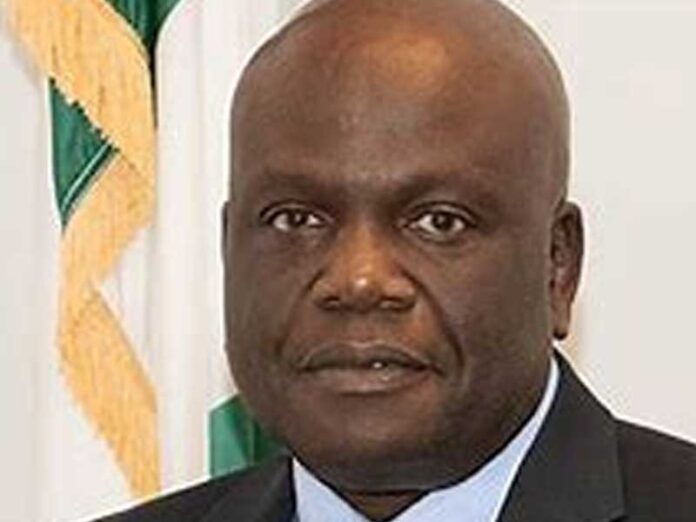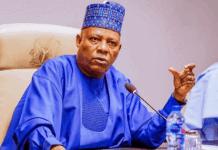Recent serious incidents and accidents have indicated that the Nigeria Civil Aviation Authority (NCAA) has become lax in the enforcement of its regulatory oversight and this has started reflecting in the number of mishaps taking place in Nigeria, industry experts have said.
The latest of such mishaps was the serious incident that happened at the Samuel Ladoke Akintola Airport, Ibadan in Oyo State on November 3, 2023, which an aircraft not designated for charter service was involved in charter operation and it landed short of the runway in the night and crashed into the bush.
Also, on August 2, 2023 a single engine, fixed wing, Jabiru aircraft with registration number 5NCCQ and three persons on board crash-landed into an old communication pole inward Ikeja Bus Stop on Oba Akran Avenue, Ikeja Lagos.
Before these two incidents there have been records of helicopter accidents that claimed lives.
On August 28, 2020 two people died and a third was critically injured and later died in hospital after a helicopter crashed into a residential area in Nigeria’s most populous city, Lagos.
The dead include the pilot and a passenger in the Bell 206 helicopter operated by Quorum Aviation.
Industry operators attribute these accidents to growing poor oversight function of the regulatory authority, the Nigeria Civil Aviation Authority (NCAA), which is accused of losing its firmness and restrict monitoring of flight operations.
The latest serious incident at the Ibadan Airport involved HS25B aircraft with Permit for Non-Commercial Flight (PNCF) with core sign, 5NAMM operated by Flint Aero.
The aircraft was reported to have hit the ground before reaching the runway, lost control and crashed into the bush.
NCAA confirmed the incident and said that the Consumer Protection Officer (CPO) arrived at the scene of the crash at 06:18hrs (6:18 am) on November 4, 2023 and after having received a call at 05:58hrs (5:58 am) on crash of a private aircraft (5N-AMM) on runway 22 which arrived at 20:13hrs (8:13 pm) from Abuja on November 3, 2023 .
NCAA also disclosed that the Airport Control Manager from the Nigerian Airspace Management Agency (NAMA), Mr Omoyele and the Teminal Head NCAA, MR Bepo Joshua were at the scene of the crash.
“Upon observation, it was observed that the aircraft touched down into the bush before the beginning of runway 22. There was an impact on the lights in the bush just before the beginning of threshold on the runway.
Industry observers established two regulation breaches about the serious incident and one was that the aircraft used for the flight was a non-commercial aircraft not meant for charter service because it does not have the permit to operate charter.
The second fact is that the Ibadan airport is designated as sunset airport, as communicated in the Notice to Airmen (NOTAM), which means flights could operate there from 6:00 am to 6:00 pm, but flight involved in the incident left Abuja at 6:41 pm and arrived at 8:13 pm.
Two operators who spoke to THISDAY said that two regulations were breached in this case: an aircraft that was meant for private service was used for charter service and it operated into an airport designated for Visual Flight Rule (VFR), that is sunset airport.
They stressed that this could be attributed to lapses of the regulatory authority, noting that such breaches have become common in recent times.
“Ibadan is known as daylight airport. It is surprising that the flight was allowed to leave Abuja to Ibadan at that time. That was a big risk. The aircraft does not have Air Operator Certificate (AOC). It has PNCF. Using aircraft that is private to operate charter services is eroding the market. It means the industry is not properly regulated. Every aircraft should be monitored. Also, the Visual Flight Rule at Ibadan airport was compromised. We operate charter services and pay 5 per cent charge to NCAA. We also face stricter regulation in terms of maintenance to ensure that aircraft that operate charter services are safer. Those that have permit as privately operated aircraft do not pay this 5 per cent charge and are not subjected to strong maintenance monitoring,” the operator who is into charter services, told THISDAY.
Another operator who is an executive of a schedule commercial airline, told THISDAY that breaching the VFR at Ibadan airport was a compromise on safety and regretted that similar flight operations have been happening to that airport and others that have similar conditions.
“Although the Nigeria Safety Investigation Bureau (NSIB) is yet to publish its initial report on the incident; so, we cannot talk about what caused the incident but the flight had no business going there without navigational aids. Also, as a private aircraft it should not have been allowed to operate charter service. That was violation of standing regulation. The operator of that aircraft can be accused of tax evasion because airlines that operate charter services pay 5 per cent tax to NCAA. A lot of things are happening these days. Last time an airline that had not operated for one hour has its AOC renewed but airlines that that have operating for years face difficulty in renewing their AOC,” the operator said.
THISDAY learnt from an official who works at the airport in Ibadan that this was not the first time an aircraft was flying to the airport late; that many aircraft do so, and the airport management and the Nigeria Airspace Management Agency (NAMA) are notified to extend operation time until the aircraft arrived.
However, the Managing Director and Chief Executive Officer of Aero Contractors, Captain Ado Sanusi, called for stricter regulation, more safety oversight and strong enforcement of 5 per cent charges collection by NCAA.
He also said that he learnt that many aircraft meant for private use have been operating charter service, urging that NCAA should step in and stop the practice, adding that NCAA may need more manpower in order to efficiently carry out its duties.
Sanusi suggested that government should come to the aid of NCAA by supporting the agency to engage more technical personnel.
“The federal government should assist NCAA to employ more technical personnel, even if it means engaging expatriates in the interim for a more effective oversight. This is very important so that everything must be done in order to maintain and improve on the current good safety record,” he said.

























